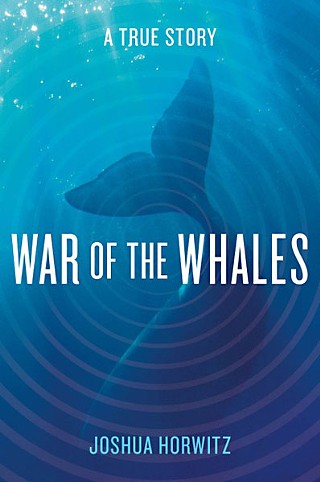Under the Big Tent
SXSW Eco brings together engaged people and active projects
By Richard Whittaker, Fri., Oct. 3, 2014
Whales and the Navy
When Joshua Horwitz makes his first visit to Austin, he's making time to see the million or so Mexican free-tailed bats that live under the Ann Richards Bridge. But it's more than just the standard tourist diversion. "I'm interested in bats," he says, "because bats are what got the Navy interested in whales."
Horwitz is the author of War of the Whales, the result of six and a half years of research into a clash between national security and environmental concerns. At his SXSW Eco panel, Our Deafening Oceans, he will appear alongside Joel Reynolds, western program director for Natural Resources Defense Council, to discuss Reynolds' 15-year legal battle with the U.S. Navy, and "the Navy's deep history through the Cold War in active sonar research." During World War II, researchers had their first real access to high-frequency listening equipment, and started studying how bats use echo-location. That research turned into active radar, replacing the earlier passive listening systems. In time, the Navy started emulating the bio-sonar used by some aquatic mammals.
The story really begins with marine biologist Ken Balcomb. In 2000, the cetacean expert found a Cuvier's beaked whale beached in front of his house in the Bahamas. That was the first of 17 beached whales found over the next two days. Balcomb connected the mass death to the Navy's use of high intensity sonar, so loud that it was causing physical damage to whales, and driving them onto dry land to avoid it. Balcomb became what Horwitz described as "a reluctant whistleblower." When the sonar controversy hit, Horwitz said, it became "the conservationists versus the Navy, and in the middle are the scientists."
Yet there's more to this than greens versus the military-industrial complex. Horwitz said, "It became a story about the conscience of the science community." He argues that, if it weren't for the Navy, there would be no major whale research: "Back in the Fifties and early Sixties, the only people who cared about saving the whales were the whalers." When the military started tracking animal behavior in the deep ocean, it opened up the study of whales and dolphins in a way that had been impossible for academics to even dream: Ships, equipment, funding – all were made available. "You really almost can't do that level of research without the Navy's cooperation," says Horwitz. Over time, scientists faced a moral quandary: Remain silent, and see their work damage the very creatures they study, or testify against the Navy, and risk ending their careers. The Navy "owned the research establishment," said Horwitz, "so when you get to the courtroom, all the expert witnesses were indentured to the Navy. ... Most of these scientists were very apolitical, and they hated having to go to court. It was really only the ones who were stricken by their conscience who did this."
But Horwitz found it was not just scientists being kept up at night; so were many military personnel. Their priority remains national security, but the U.S. Navy has become increasingly green, adopting programs like on-ship recycling. "They're very progressive on energy conservation, because they have such a big energy bill. When they got a black eye over active sonar, they were very sensitive about it," he said. In fact, rather than seeing his work rejected or debunked, Horwitz has been invited to speak at the Naval Academy in Annapolis and the Naval War College in Rhode Island.
There's an unusual coda, too. As the legal fights continued, Horwitz said, "What these researchers chafed under was that they couldn't publish their research." Finally the Navy started publishing its own classified academic journal, so that the researchers' work could be peer-reviewed and published, "even if your peer group was 12 people around the world with the same security clearance."
Joshua Horwitz will speak on the panel, Our Deafening Oceans, at 4:45pm Tuesday, Oct. 7, at the Austin Convention Center, Room 18A. He will also be signing his book, War of the Whales, in the Ballroom D Foyer at 5:45pm.
Got something to say on the subject? Send a letter to the editor.










